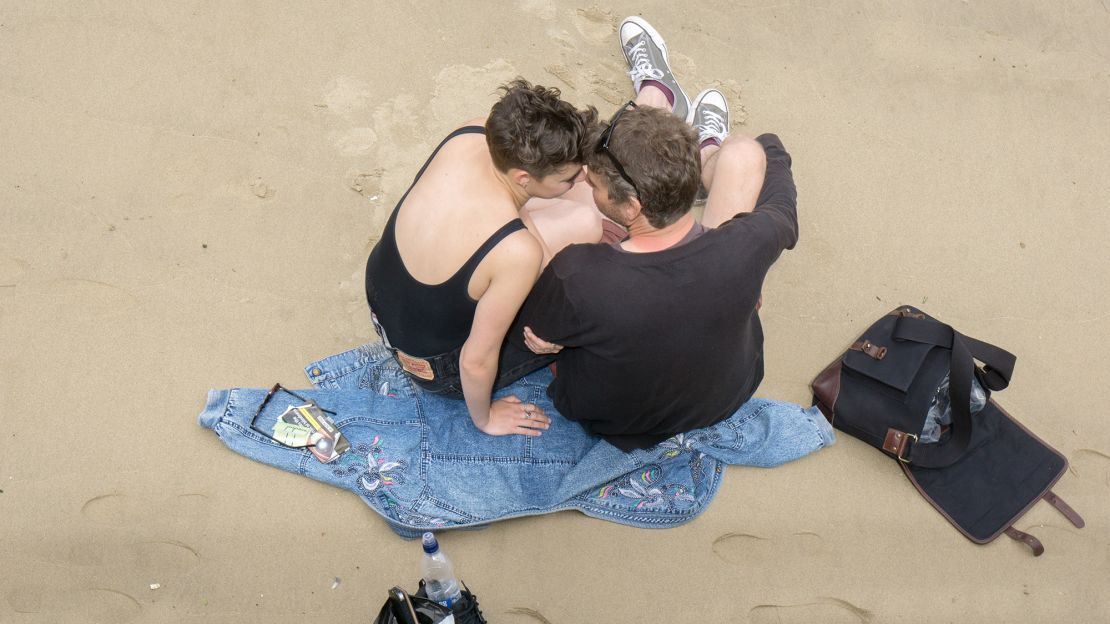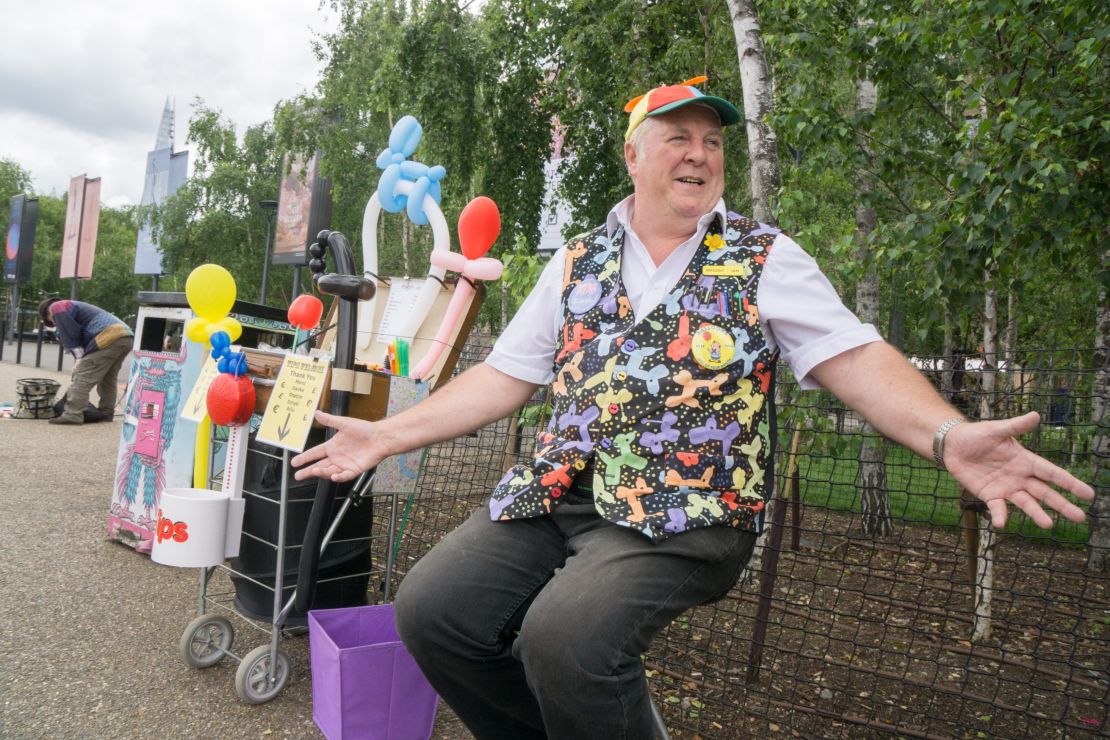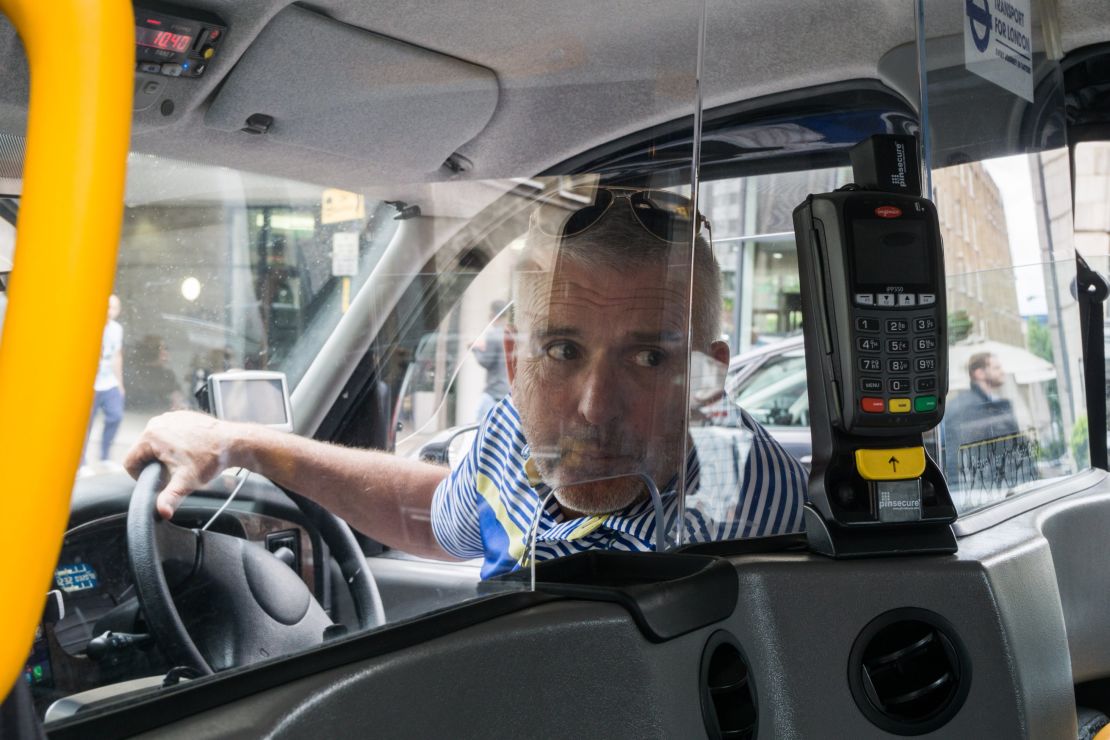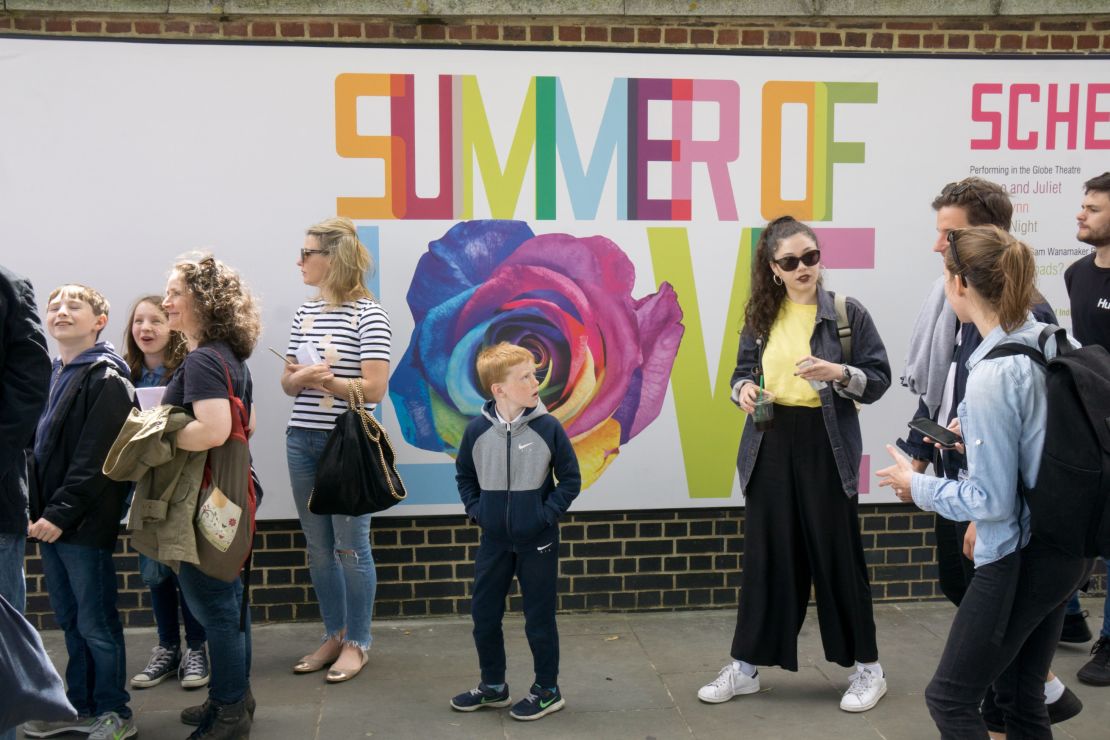The morning dawned sunny and bright in London, the sort of day visitors and locals cherish; tourists wandered, maps in hand, and Londoners headed to cafes for a late breakfast.
But the streets were quieter than usual, and while those out and about were clearly determined to get on with their plans, there was a sense of edginess.
Saturday night, horror came to London Bridge: three terrorists rammed a van into people walking across London Bridge, before leaping out and attacking drinkers and diners with knives at Borough Market, a popular spot full of bars and restaurants.
London Bridge terror attacks
By the time their 18-minute rampage was brought to an end by armed police, seven people were dead, and at least 48 injured.
Southwark Bridge and the South Bank, a short distance from Borough Market, felt unusually quiet at Sunday lunchtime.
The few tourists milling around paused to look out over the Thames towards the scene of the previous night’s attack. Police in yellow high-visibility jackets paced back and forth, offering people directions to avoid the cordoned-off area.
Some, though, were defiant.

Bride and groom Christine Yang and Mario Yuan, both 26, came all the way from Guangdong, China, to take their wedding photographs in front of London’s iconic landmarks.
Standing on the Millennium Bridge, with St Paul’s Cathedral behind them, Yang said that after studying in London for two years the city had special meaning to her.
And she was determined not let the terror incident stop her plans: “I heard about it but I don’t worry about it. I still believe the U.K. Is safer than China. I just wanted to make some memories here.”
Kristina Simons, 47, a teacher from Greenwich, was walking across the mostly-deserted Southwark Bridge on Sunday morning, heading to a yoga class.
“My first thought when I woke up this morning was not to go into the city today,” she admitted. “It’s hard to verbalize that feeling.”
Simons, who grew up in London, said the city had felt reasonably secure until recently. “We’ve had a few safe years when we haven’t had to think about it. It is worrying. It makes you feel unsafe.”
But she sounded a note of resilience, insisting that Londoners must not give in to terrorists: “I was on a big night out on the South Bank drinking with my friends recently and I didn’t even think about it … You have to carry on.”

Stephanie Graff, 42, from Lyon in France, held hands with her eight- and 10-year-old sons as they looked out over the river from Southwark Bridge. Graff, who was visiting London for the weekend, said she’d be happy to head home on Monday.
“Because of the kids, I don’t tell them what’s going on. I don’t want them to be scared. I just tell them that there are many police out keeping people safe.”
After a spate of similar attacks in France, she says this is not a new dilemma: “I explain the sadness, but I don’t want them to be afraid. You need to keep living.”
Ildiko Papp, 49, her husband Alejandro, 58, and daughter Cristina, 16, arrived in London on Friday with a tour group from Hungary. On Sunday their guide was stopped short at the cordon set up outside The Anchor pub, just around the corner from Borough Market.
“We were a bit worried after Manchester, but we thought OK we won’t cancel our trip, the same thing won’t happen in the same place twice. But this attack has overwritten that rule as well,” she says. “We no longer have reference points of what to expect, but that won’t stop us.”

Ian Thom, 65, a Scot who has lived in London most of his life, spends his Saturdays and Sundays on the South Bank making balloon animals for passersby.
“I’m part of the ambiance here,” he said. “I’ve been able to make a couple of people smile today but it is a lot quieter – there should be a lot more people out on a day like today.”
“It’s not going to stop any of us though. I feel annoyed and angry that they’ve dared to disturb the harmony here, but it’s a temporary thing.”
“We’ll just get on with it,” he insisted, adding: “We’ve survived bigger and far worse.”
Street performers, rickshaw drivers, cabbies, and others who make up the fabric of the South Bank echoed Thom, saying that far fewer people were out and about than usual.
“People are walking around the city like zombies,” said black cab driver Danny Hussey.
Hussey, who has worked as a cabbie for 17 years, said he was on Westminster Bridge when another attack unfolded in March.
“It’s gone really bad here,” Hussey said, adding that traffic was down about 70% from an average Sunday.

Geani Cosdea, a 36-year-old rickshaw driver from Romania, was parked on Westminster Bridge on Sunday afternoon. He said he has also noticed a marked drop in tourists since the March attack.
“Working here every day on the bridge, I can see that since the Westminster attack there are a lot less tourists,” Cosdea says.
But the attack did not deter tourist Daniel Almgren, 43, from Stockholm, Sweden. Almgren was with his 11-year-old daughter Lo at Bank Station on Saturday night when the attack happened.
“We were sort of locked in – hundreds of people were running around saying that there had been an attack,” he recalled. “We rushed onto the last DLR train. It was only at midnight that I got cell service and found out what was going on.”
“There was just a similar attack in Stockholm, where we live. My wife was actually very near to that attack at a café,” he said. “We had a lot of discussions after that and this morning again. I don’t want (Lo) to think this is stuff that happens regularly.”
“This is her first time in London and I had to explain to her that this not regular,” he added. “We will try not to let this change our plans and change our mood. The best thing to do is not to change our ways.”

Friends Daniel Leadbitter, 20, and Ellie Harrier, also 20, were among hundreds queuing outside Shakespeare’s Globe theater on Sunday afternoon.
“The best thing about London is that it doesn’t ever find itself defined by its downfalls,” said Harrier. “We acknowledge we are a flawed population and we move on.”
But Leadbitter said it was important not to give in to the terrorists.
“Can’t stop yourself from doing things just because of incidents like last night,” he insisted. “We’re going to see Romeo and Juliet, a play about love. That’s what this city needs right now, love.”
CNN’s Bryony Jones contributed to this report




